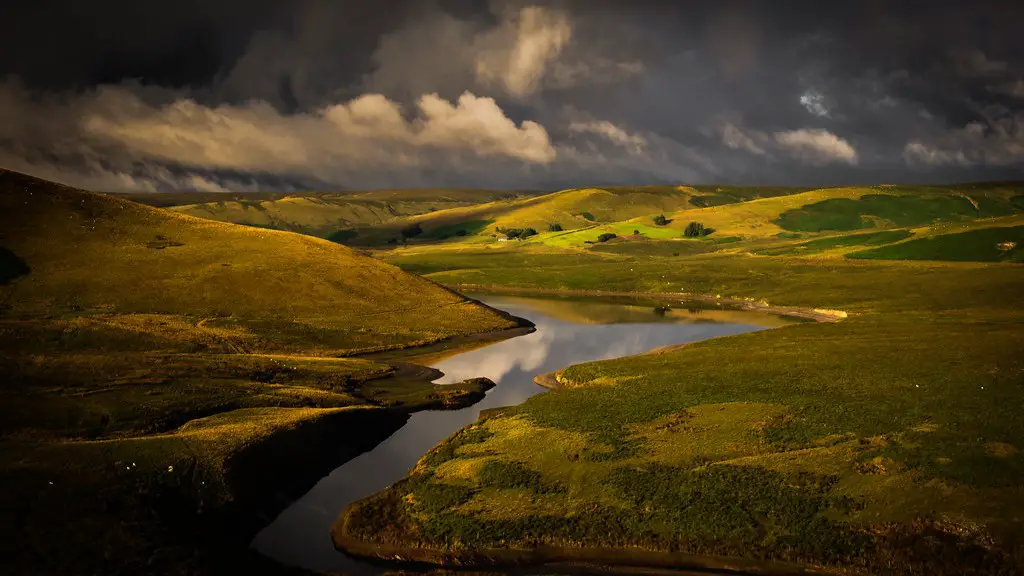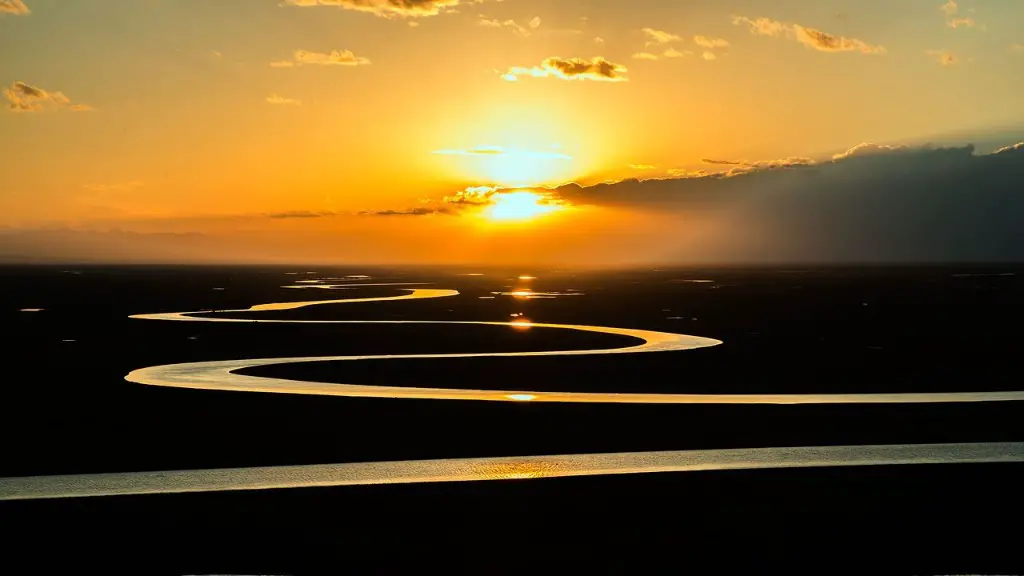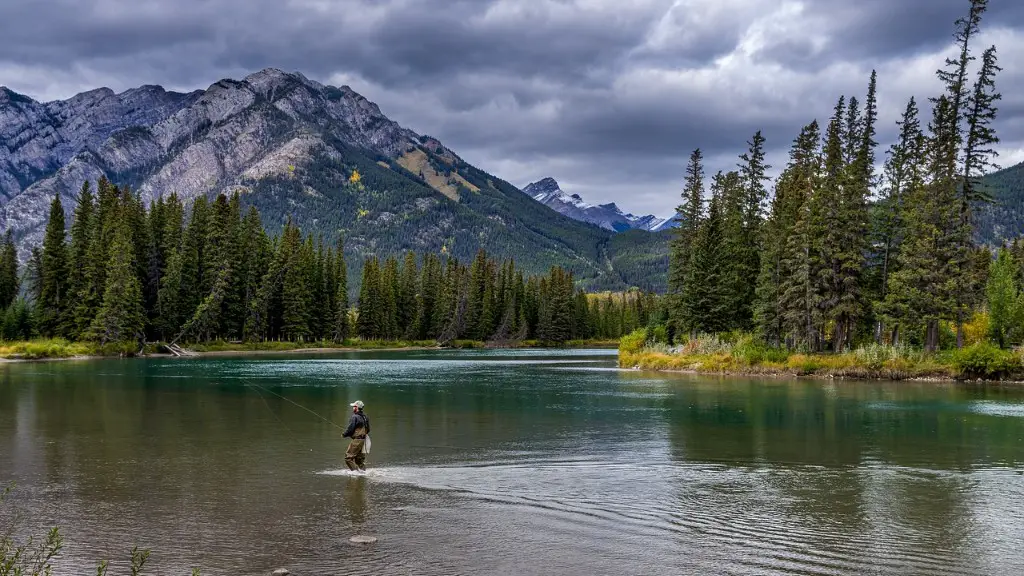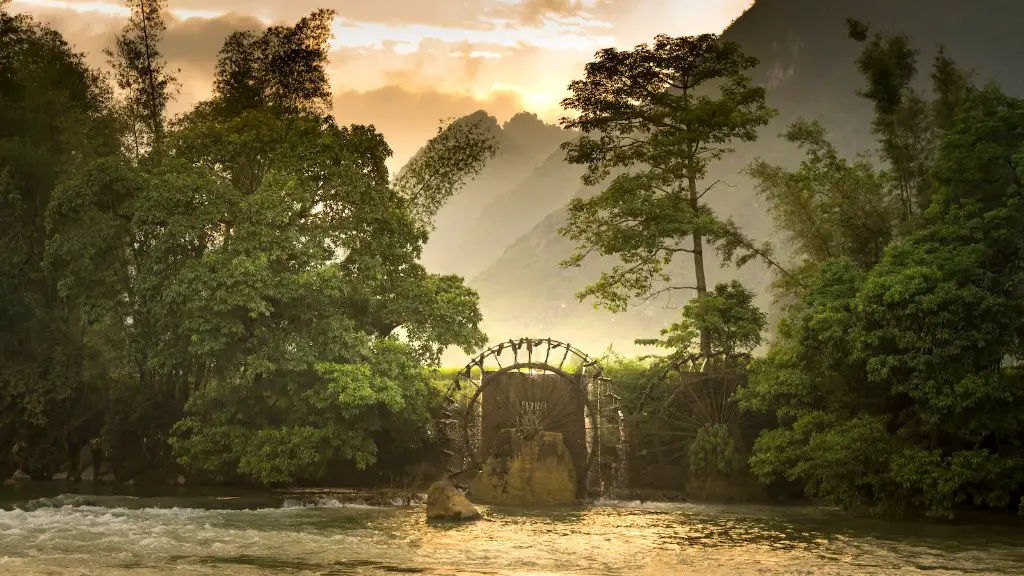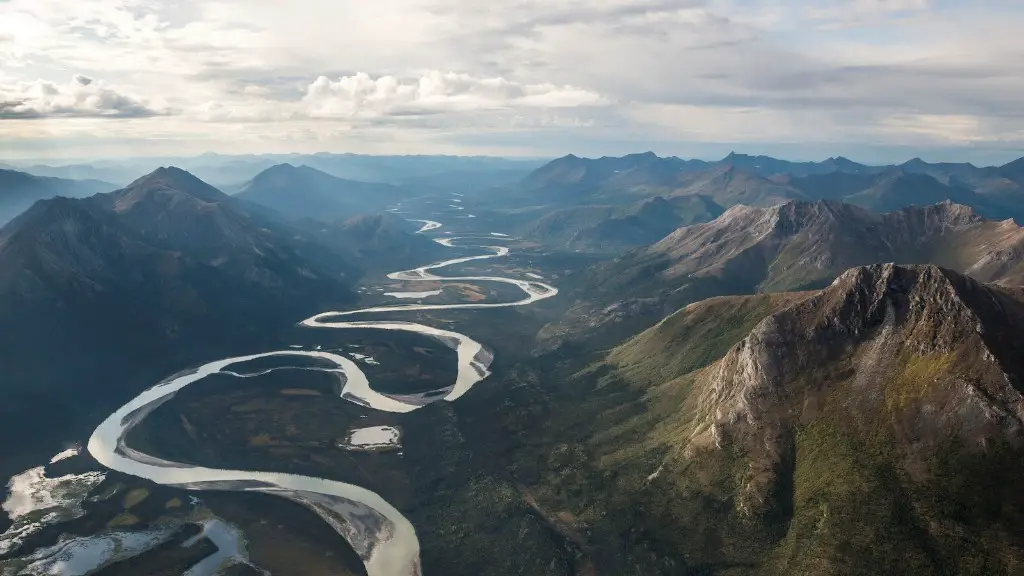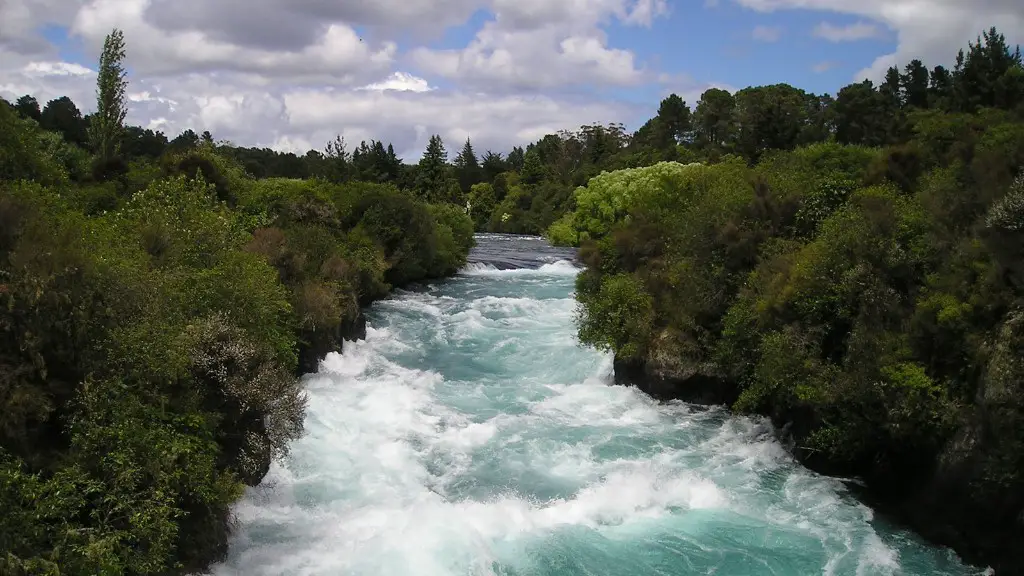The vast Mississippi River is one of the largest river systems in the world, and is often referred to as the lifeblood of millions of people in the United States and beyond. But where does Mississippi River originate? The answer to this question lies in the complex and interconnected natural systems that make up Missouri and its tributaries.
The Mississippi River begins in Lake Itasca, Minnesota, located in the northern part of the state. At 486 feet above sea level, the lake is considered the official source of the Mississippi River and is home to a variety of wildlife and vegetation. From here, the river flows south for 2,348 miles, winding through 10 states before eventually emptying into the Gulf of Mexico.
It is believed that the river was formed at the end of the last glacial period, some 14,000 years ago. Over time and through erosion, the river has slowly moved and changed course. Today, it is one of the most important and heavily used river systems in the world. Along its banks, countless cities and towns have sprung up, relying on the river for transportation, industry, agriculture, and power.
The Mississippi River has also been an important source of food for many of its inhabitants. Because of its large feeding and carry-over-fertilization potential, the river is rich in fish, molluscs, and aquatic vegetation. It is presently home to over 200 species of fish, some of which, such as the paddlefish, sturgeon, and American eel, have been used as a food source since time immemorial.
On a larger scale, the river is responsible for transporting millions of tons of goods and freight each year, connecting different parts of the United States and abroad. Additionally, it is a vital part of many recreation activities and tourist destinations. From kayaking and riverboat cruises to bass fishing, the Mississippi River is a hotspot for outdoor recreation.
The Mississippi River is a key part of many people’s livelihoods, cultures, and traditions. The river’s importance in the United States is undeniable, with its history and impact being felt in countless ways. The source of the Mississippi River, Lake Itasca, is a testament to the significance and power of the river and its place in American culture.
Effects of Global Warming on Mississippi River
Global warming has had an immense effect on the Mississippi River and its neighboring ecosystems. From the receding glaciers to the rising sea levels, the effects of climate change are far-reaching and felt by all. In terms of the Mississippi River, its water levels are affected by both an increase in temperature and an increase in the number and size of extreme weather events.
Rising temperatures result in higher average air and water temperatures, which can cause high levels of evaporation, more drought, and more precipitation. The more precipitation that falls, the greater the chance of flooding. In addition, more frequent flooding can cause changes to the river banks, which could impact the food sources and habitat of wildlife living there. This is of particular concern, as the river plays a crucial role in the conservation of a number of threatened species.
On the other hand, climate change also affects the number and intensity of extreme weather events, such as hurricanes and drought. This can lead to increased water levels in the river, as well as increased sediment buildup. As the sediment builds up, it can reduce the amount of water available for navigation, recreation, food sources, and other uses.
Climate change has had a huge impact on the Mississippi River, and it has caused a number of negative effects on the environment, wildlife, and the people who depend on it. Its effects are far-reaching and need to be taken into consideration when discussing the importance of the river.
Environmental Conditions of Mississippi River
Over the past several decades, the environmental conditions of the Mississippi River have deteriorated due to a number of factors. From agricultural runoff, to sewage and industrial waste, the water quality of the river has suffered as a result of human activities that pollute the environment. This has led to a decrease in biodiversity and an increase in the number of species threatened with extinction.
Despite numerous conservation efforts, the water quality of the Mississippi River remains a cause for concern. In 2018, the Environmental Protection Agency (EPA) reported that the river was classified as impaired due to high levels of nutrients, chemicals, and metals. The report also noted that nitrogen and phosphorus levels in the river were well above the recommended threshold for safe drinking water. As a result, water quality continues to be a major issue for both the ecology and people of the Mississippi River region.
Today, efforts are being made to reduce water pollution and improve water quality within the Mississippi River Basin. Some of these efforts include the use of environmentally friendly agricultural practices, the creation of buffer zones, and the promotion of best management practices. By taking these steps, it is hoped that the water quality of the Mississippi River can be improved and protected in the future.
However, more must be done to address the root causes of water pollution in the river. This includes tackling issues such as population growth, agricultural runoff, and industrial waste. It is only by addressing these issues that the river can be restored to its former glory and remain an important source of life and sustenance for millions of people.
Importance of Mississippi River in American History
The importance of the Mississippi River in American history is undeniable. For centuries, the river has been a symbol of independence and progress, being a vital route for exploration, transportation, and trade. It has served as an important source of food and fresh water for the people of America, and as an integral part of their culture, religion, and way of life.
Also, the river has been central in the development of the United States. As settlers moved west and north, many followed the Mississippi River as a route of exploration. It also served as an important artery of communication, connecting the east and west coasts with all points in between. The river also served as an important economic resource, providing transportation of goods and resources, hydroelectric power, and an abundance of fish and other foods.
In recent years, the Mississippi River has been subject to a number of threats. Pollution, illegal logging, and climate change are all posing a threat to the river and its inhabitants. Yet despite these threats, the importance of the Mississippi River in American history and culture cannot be understated. It is a legacy worth cherishing and preserving for future generations.
Economic Importance of Mississippi River
The economic importance of the Mississippi River is often overlooked, and yet it is an integral part of many people’s livelihoods. Along the banks of the river, businesses can be found in abundance, relying on the river for transportation of goods, resources, and labor. In addition, the river is used for tourism and recreational activities such as boating, fishing, and hunting.
Moreover, the river is also a major source of hydroelectric power, providing energy to millions of people in the surrounding areas. In addition, the river is an important source of food, providing millions of people with fish, molluscs, and other edible aquatic species. All of these activities contribute to the economy of the Mississippi River basin and its environs, and help to create jobs and promote economic growth.
As people continue to rely on the river for their livelihoods, the importance of preserving and protecting the environment of the river basin increases. Efforts must be made to ensure that the river remains a major economic force, and that it is not threatened by environmental degradation or irresponsible human activities.
It is clear that the Mississippi River is playing an increasingly important role in the economy of the surrounding region. Given the reliance of so many people on the river for their livelihoods, it is vitally important to ensure the preservation and security of the river and its resources.
Protection and Preservation of Mississippi River
In order to protect and preserve the Mississippi River for generations to come, the National Wild and Scenic Rivers System was established in 1968. This system is a collection of rivers designated for protection from human interference and from environmental degradation. The aim of the system is to preserve the river’s natural and cultural values for future generations.
In addition to its protection through the Wild and Scenic Rivers System, the Mississippi River has been designated as an important natural and cultural resource. This designation gives the river special protection and sets restrictions on the type of activities that can take place within its boundaries. In order to preserve its vital resources, any changes to the river must go through an extensive permitting process.
Furthermore, various agencies, such as the United States Fish and Wildlife Service and the National Park Service, are responsible for administering the protections of the river. These agencies work to ensure that human activities do not threaten the integrity of the river, as well as to monitor environmental degradation. To this end, they work with local communities, businesses, and other stakeholders in order to ensure the protection and preservation of the river’s resources for future generations.
The protection and preservation of the Mississippi River is essential for its continued health and vitality. By preserving and protecting the river, we can ensure that its resources are available for future generations to enjoy and appreciate.
